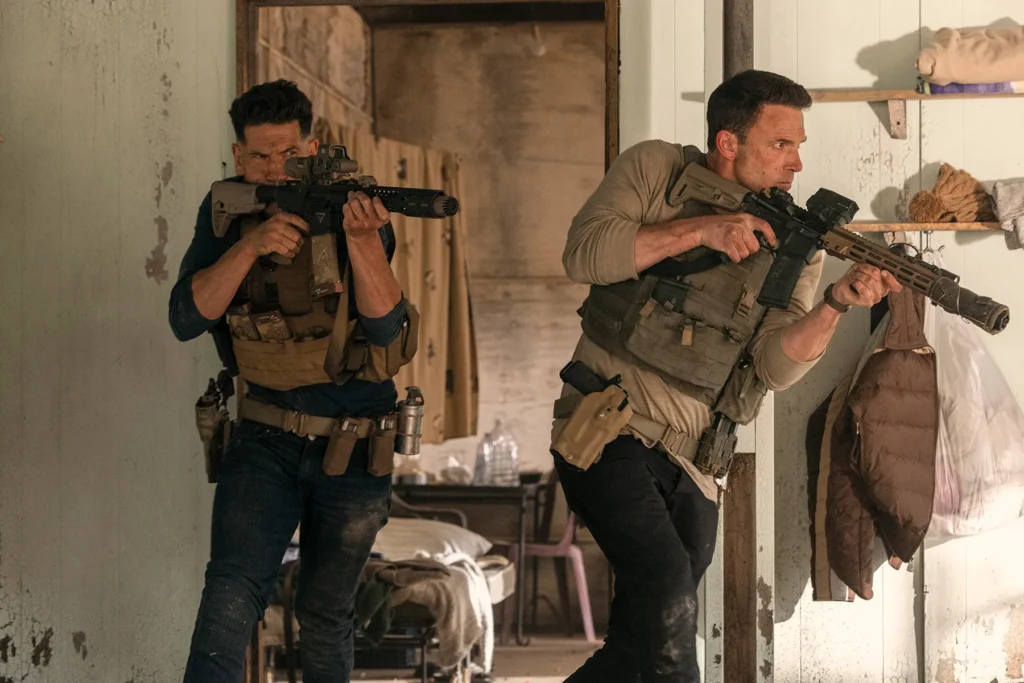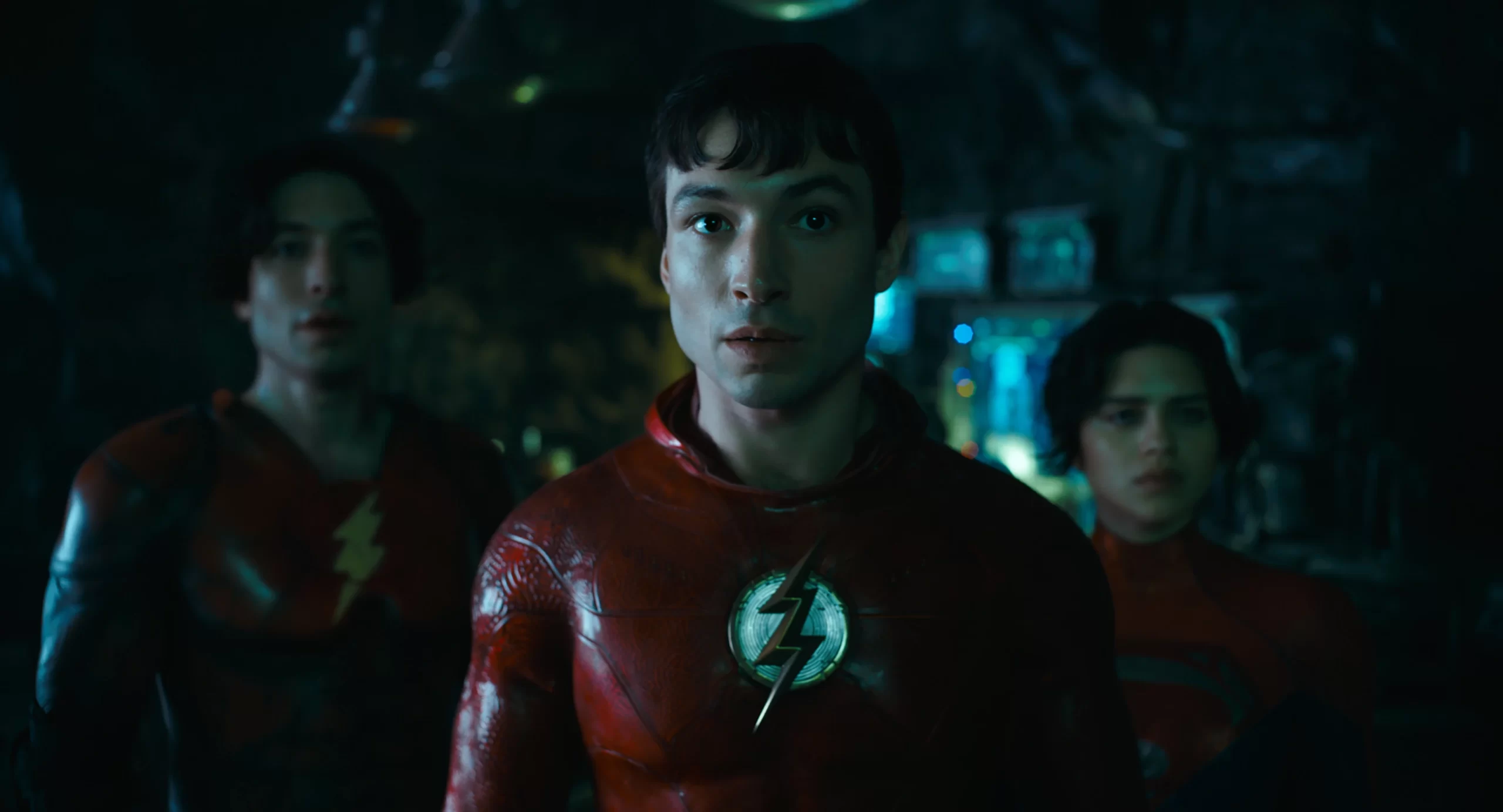Almost a decade after the release of the first film, The Accountant 2 hits theaters with the core creative team returning. Directed by Gavin O’Connor and written by Bill Dubuque – the same creative duo behind the 2016 movie – Ben Affleck and Jon Bernthal reprise their roles as brothers separated by the circumstances of life, alongside Cynthia Addai-Robinson as the deputy director of a branch of the U.S. government. The narrative premise is simple and straightforward: when an old acquaintance is murdered and leaves behind an enigmatic message, Christian Wolff (Affleck) recruits his brother Braxton (Bernthal) to help dismantle a human trafficking network.
While the original film focused more on building Christian’s isolated character and exploring doubts about his neurodivergent condition, The Accountant 2 surprises by going all-in on the captivating dynamic between the brothers. The shift in focus transforms the sequel into a sort of buddy comedy, where the actors’ natural charm and explosive chemistry shine in almost every scene they share – which, fortunately, are plentiful. Their comedic timing feels organic, and there’s a subtle emotional honesty in the brothers’ reunion, whose reconnection – while handled in a lighter, more accessible manner for the average viewer – still carries enough dramatic weight to avoid coming across as a mere emotional “shortcut.”
Despite the lighter tone, The Accountant 2 doesn’t abandon its more tense side. Bryce Dessner’s (We Live in Time) score creates an atmosphere of constant anticipation, elevating the action sequences to a new level compared to the original. Technically, the shootouts are more intense, there are more hand-to-hand combat choreographies, and a more visceral level of violence that guarantees adrenaline-seekers the necessary entertainment. The third act stands out with a vibrant rescue mission, balancing spectacle with emotion without losing sight of the story’s heart.
Beyond the brothers, agent Marybeth Medina (Addai-Robinson) is given a stronger moral dimension, faced with tough decisions that test her professional ethics. The Accountant 2 shows respect for her character and her unwavering dedication to the law, even granting her a standout solo action moment. She holds the most developed character arc in the entire movie.

However, The Accountant 2 isn’t without flaws. The main issue lies in the excessive number of subplots, secondary characters, and scenes that, while individually entertaining, unnecessarily bloat the runtime. Moments like Braxton’s emotional meltdown before making a call about adopting a dog, or Christian dancing to country music at a bar, are genuinely hilarious and help humanize the characters, but other sequences drag on beyond what would be narratively effective. The attempt to give so much screen time to so many elements results in an uneven pace, with stretches where the story seems to get lost in its own detours.
It’s standard for films of this style to ask for the usual “suspension of disbelief.” That said, there are always limits, and when crossed, these test even the most forgiving viewers’ tolerance. The introduction of a group of neurodivergent children as masters of espionage and computing is, at the very least, dangerous. I believe the intention is positive – to portray young people on the autism spectrum as highly capable individuals – but the exaggerated execution leads to a dramatization so unrealistic that it borders on caricature. By turning these kids into “super geniuses” able to hack any system with ease, The Accountant 2 risks trivializing a complex, real condition, creating an almost fantastical image of something that, in real life, involves much deeper and more complicated challenges.
On the other hand, O’Connor and Dubuque are relatively smart in how they handle Christian’s own neurodivergence. Unlike the portrayal of the children, The Accountant 2 doesn’t fall into the trap of reducing the protagonist’s condition to a standalone “special skill.” Christian undergoes an arc that shows him as someone capable of empathy, affection, and pain – universal human qualities that aren’t negated by his distinct way of seeing the world. Although the approach isn’t perfect, there’s a visible respect for the emotional complexity of the character, representing a positive step, especially considering today’s audiences’ growing sensitivity to these themes.
Narratively, The Accountant 2 suffers from overly intricate structures, full of twists that, while they keep the audience engaged, ultimately compromise the overall cohesion. With each new detour from the main narrative, the emotional connection built between Christian and Braxton loses a bit of strength – which is a shame, given that their relationship is unquestionably the movie’s greatest asset. With a few minor adjustments, this could have been a surprising contender for one of the year’s most memorable films.
The Accountant 2 turns out to be a surprisingly superior sequel to the original, driven by the smart bet on the fraternal relationship between Ben Affleck and Jon Bernthal. Featuring more polished action set pieces, genuinely funny moments, and enough emotional depth to engage the audience, Gavin O’Connor delivers a story that is both highly entertaining and thrilling, falling short of greatness only due to an overabundance of secondary threads and occasional narrative loss of focus. Still, the impeccable chemistry of its lead duo and the honest – if imperfect – attempt to tackle sensitive topics with respect guarantee a personal recommendation for anyone looking for a pleasant night out at the movies.






